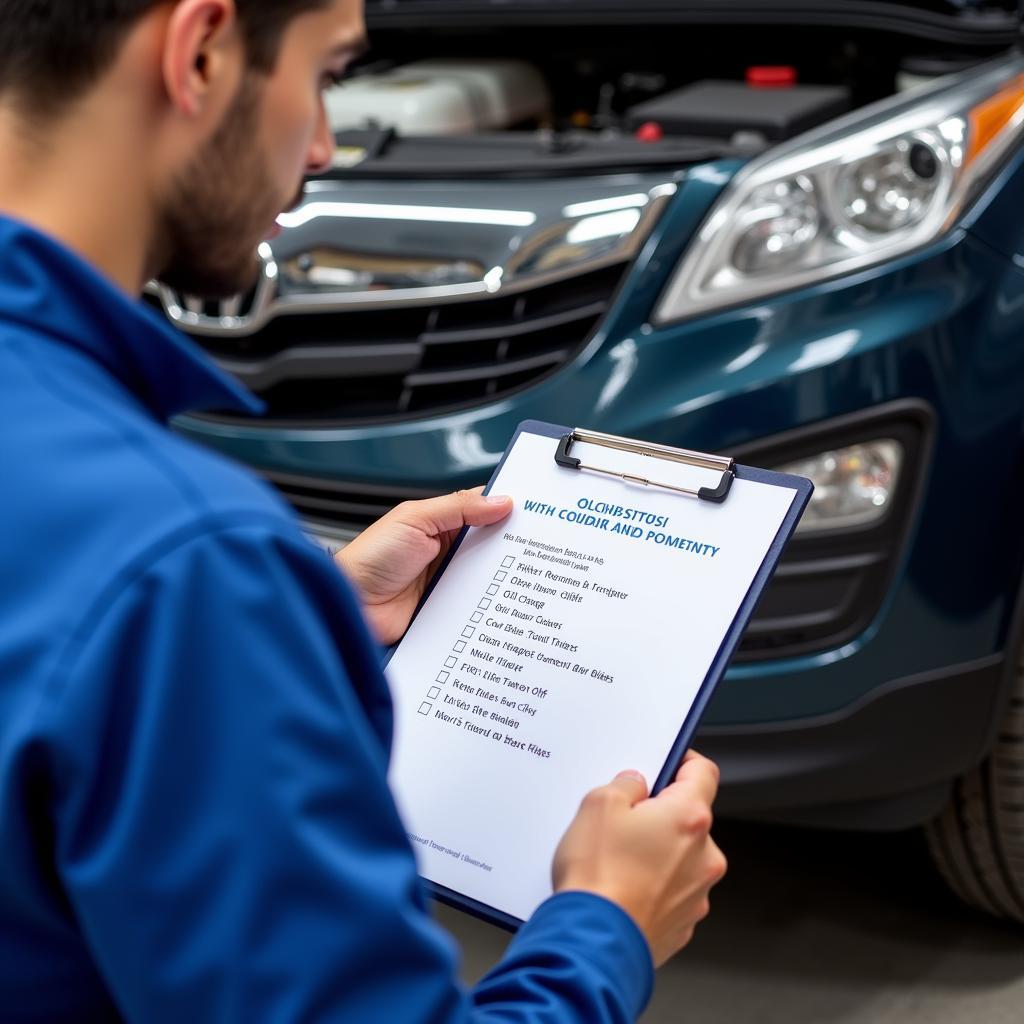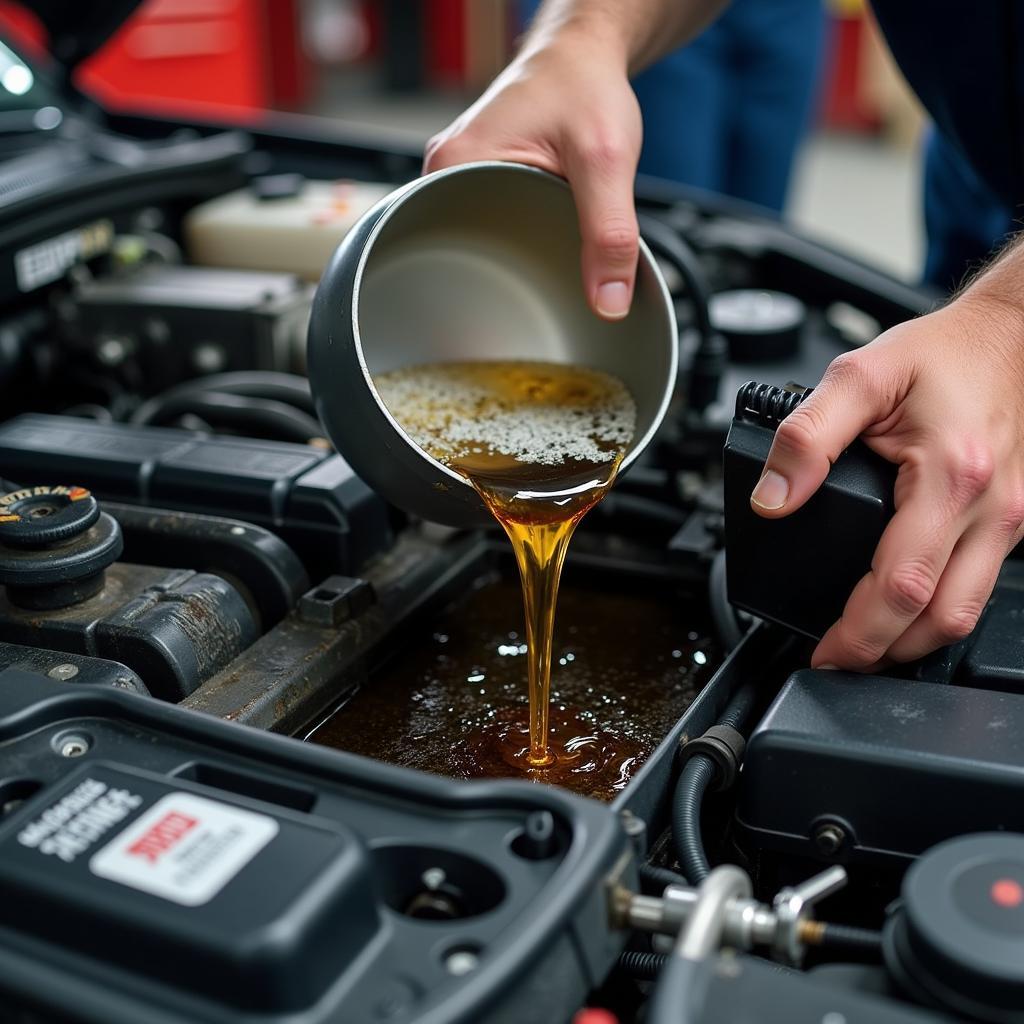What is a Minor Service on a Car?
If you’re a car owner, you’ve probably heard the terms “minor service” and “major service” thrown around. But what do they actually mean, and how do you know which one your car needs?
This comprehensive guide will break down everything you need to know about minor car services, from what’s included to how often you should get one.
Understanding the Importance of Regular Car Servicing
Just like any complex machine, your car needs regular maintenance to run smoothly and efficiently. Regular servicing not only keeps your car in top condition but also helps to:
- Prevent costly repairs: Identifying minor issues early on can save you a lot of money in the long run.
- Improve fuel efficiency: A well-maintained engine burns fuel more efficiently.
- Enhance safety: Regular checks ensure that your brakes, tires, and other safety-critical components are in working order.
- Maintain your car’s value: A full service history can increase your car’s resale value.
What is a Minor Service on a Car?
A minor service is a routine check-up and maintenance procedure for your car. It’s less extensive than a major service and focuses on replacing essential fluids and filters. While the specific tasks may vary slightly depending on your car make and model, a typical minor car service will generally include:
- Oil and oil filter change: The engine oil is replaced with fresh oil, and the old oil filter is replaced with a new one.
- Fluid level checks and top-ups: This includes checking the coolant, brake fluid, power steering fluid, windshield washer fluid, and transmission fluid (if applicable) and topping them up as needed.
- Tire pressure check and adjustment: Your tire pressures are checked and adjusted to the recommended levels.
- Visual inspection: A visual inspection of the brakes, belts, hoses, and tires is carried out to look for signs of wear and tear.
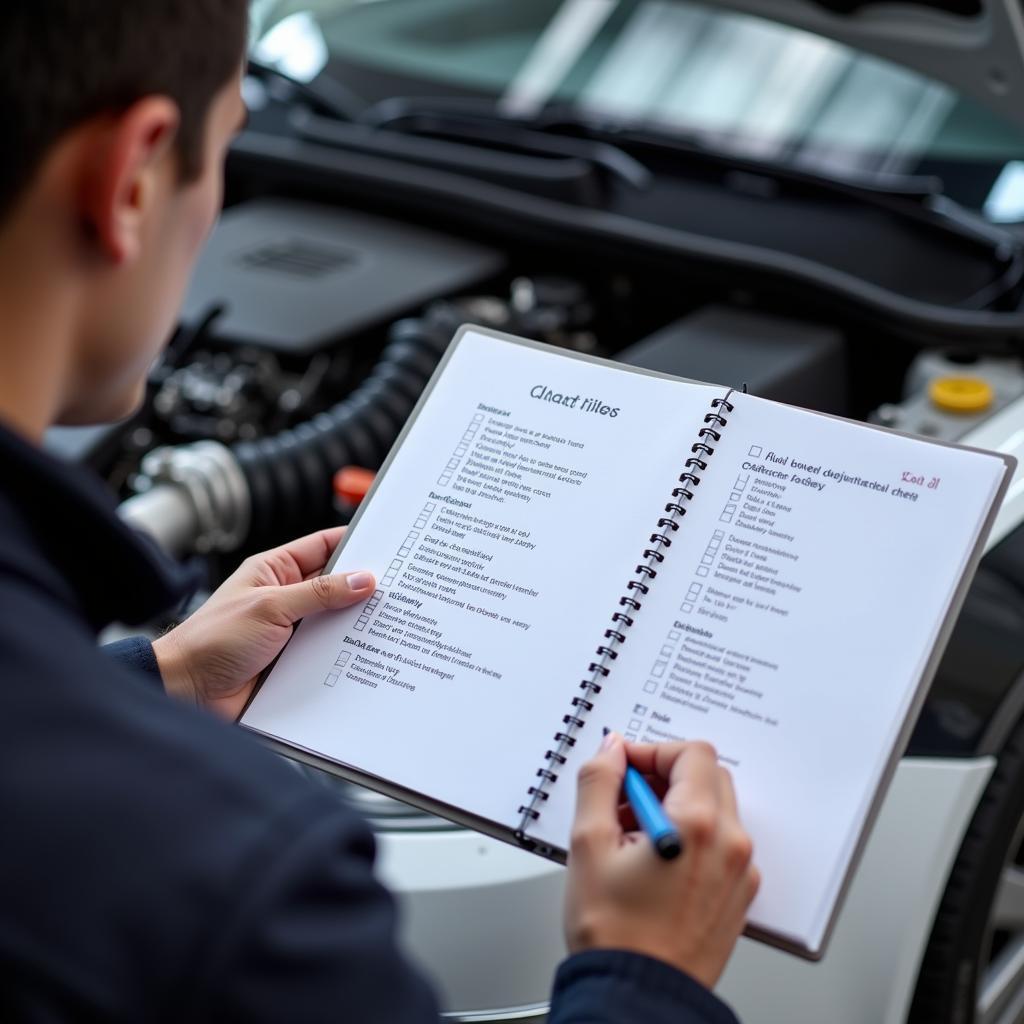 Mechanic checking off a minor car service checklist
Mechanic checking off a minor car service checklist
How Often Should You Get a Minor Service?
The general rule of thumb is to get a minor service every 6 months or 6,000 miles, whichever comes first. However, it’s always best to consult your car’s owner’s manual for the manufacturer’s recommended service intervals. Some newer cars might have longer service intervals.
Factors that can affect service intervals:
- Driving conditions: If you frequently drive in harsh conditions (e.g., extreme temperatures, dusty environments, stop-and-go traffic), you may need to service your car more often.
- Driving style: Aggressive driving can put more strain on your car’s components, potentially requiring more frequent servicing.
- Car’s age and mileage: Older cars with higher mileage may require more frequent servicing.
Benefits of a Minor Service
- Improved engine performance: Fresh oil and a new oil filter help to keep your engine clean and lubricated, improving its performance and lifespan.
- Better fuel economy: Clean oil and a properly functioning engine contribute to better fuel efficiency.
- Enhanced safety: Regular checks on your brakes, tires, and fluids help to ensure that your car is safe to drive.
- Peace of mind: Knowing that your car is well-maintained gives you peace of mind on the road.
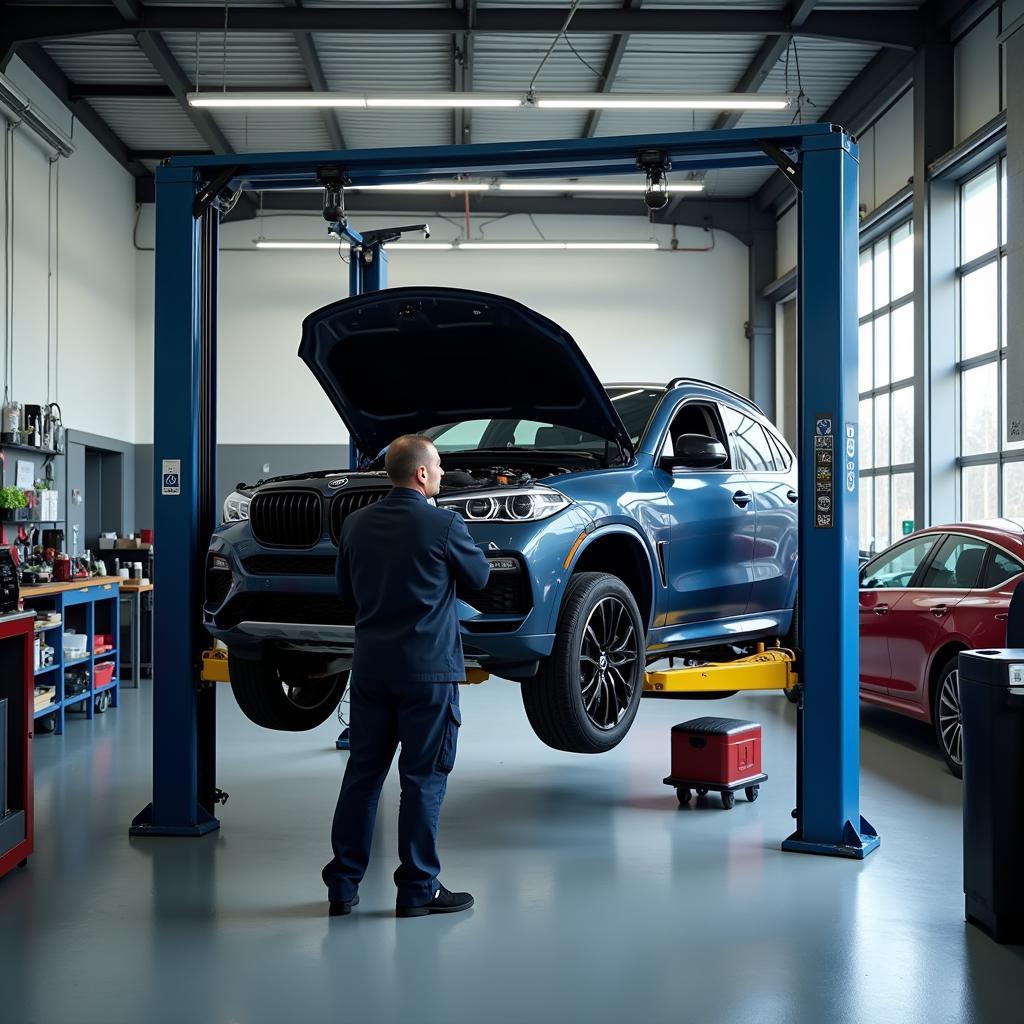 Car being serviced in a garage
Car being serviced in a garage
Choosing the Right Service Provider
When choosing a service provider for your car’s minor service, consider the following factors:
- Reputation: Look for a reputable garage or mechanic with positive customer reviews.
- Experience: Choose a provider with experience servicing your car make and model.
- Transparency: Ensure that the provider is transparent about their pricing and the services they offer.
- Warranty: Inquire about warranties on parts and labor.
Minor Service vs. Major Service: What’s the Difference?
While both minor and major services are essential for your car’s health, they differ in scope and frequency. As we’ve discussed, a minor service focuses on essential fluid and filter changes.
A major service, on the other hand, is a more comprehensive procedure that includes all the elements of a minor service plus additional checks and replacements, such as:
- Spark plug replacement
- Air filter replacement
- Fuel filter replacement
- Cabin filter replacement
- Inspection of suspension components
- Inspection of steering components
- Brake pad/rotor inspection and potential replacement
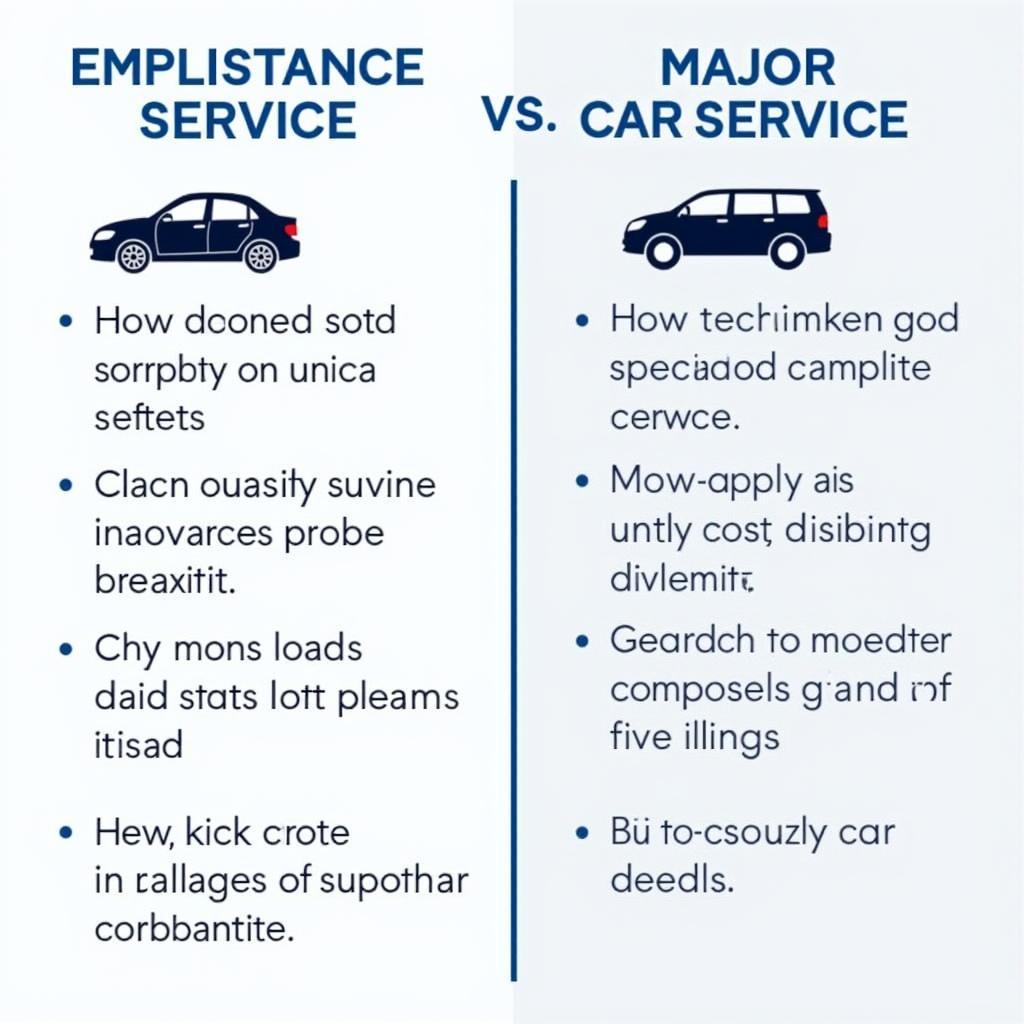 Comparison chart of minor and major car service
Comparison chart of minor and major car service
Understanding the difference between a minor service and a major service will help you make informed decisions about your car’s maintenance needs.
Conclusion
Getting a minor car service is an essential part of car ownership. By adhering to the recommended service intervals and choosing a reputable service provider, you can ensure that your car remains in optimal condition, saving you money on costly repairs and keeping you safe on the road.
Remember, a well-maintained car is a happy car (and a happy owner!).
